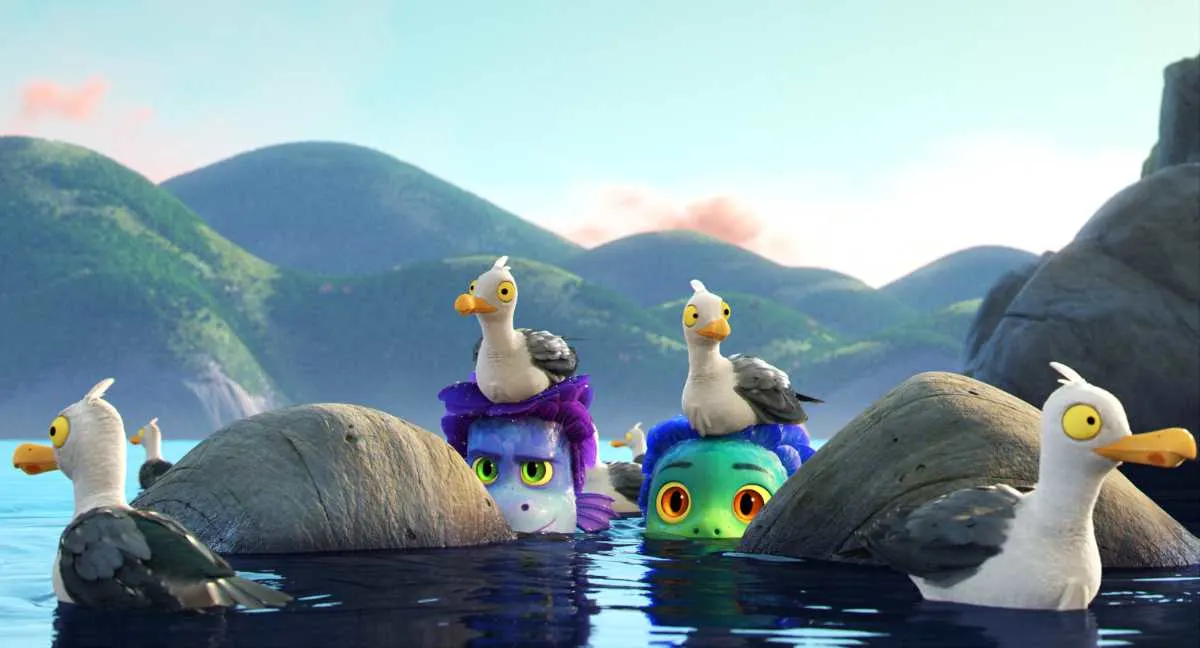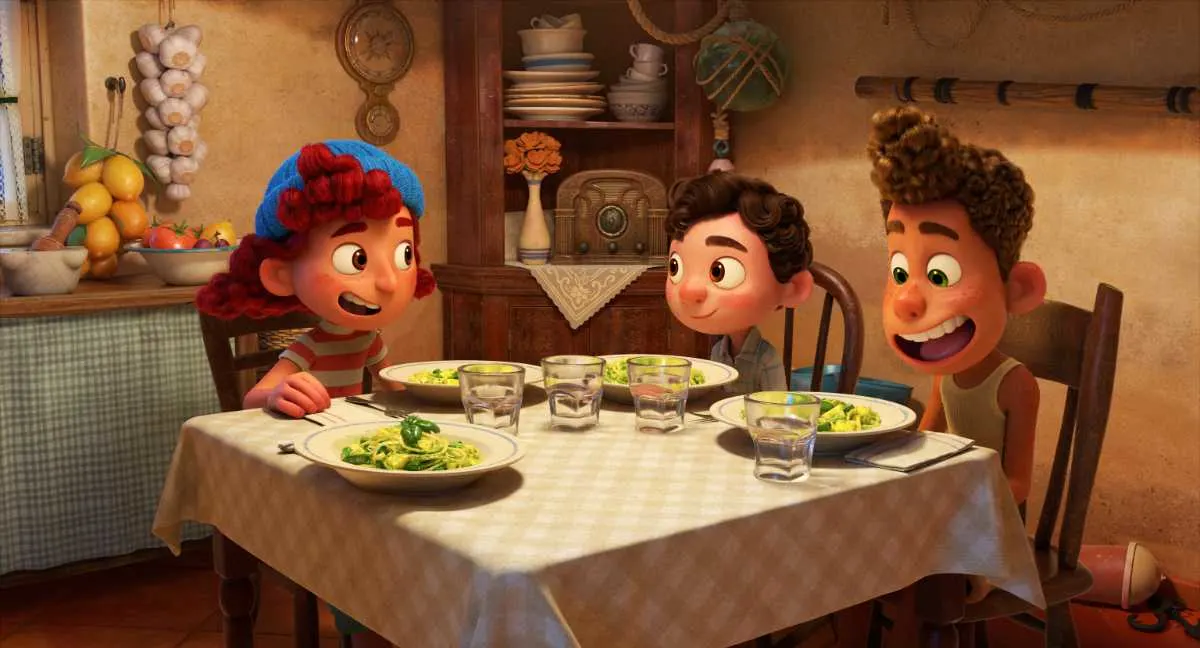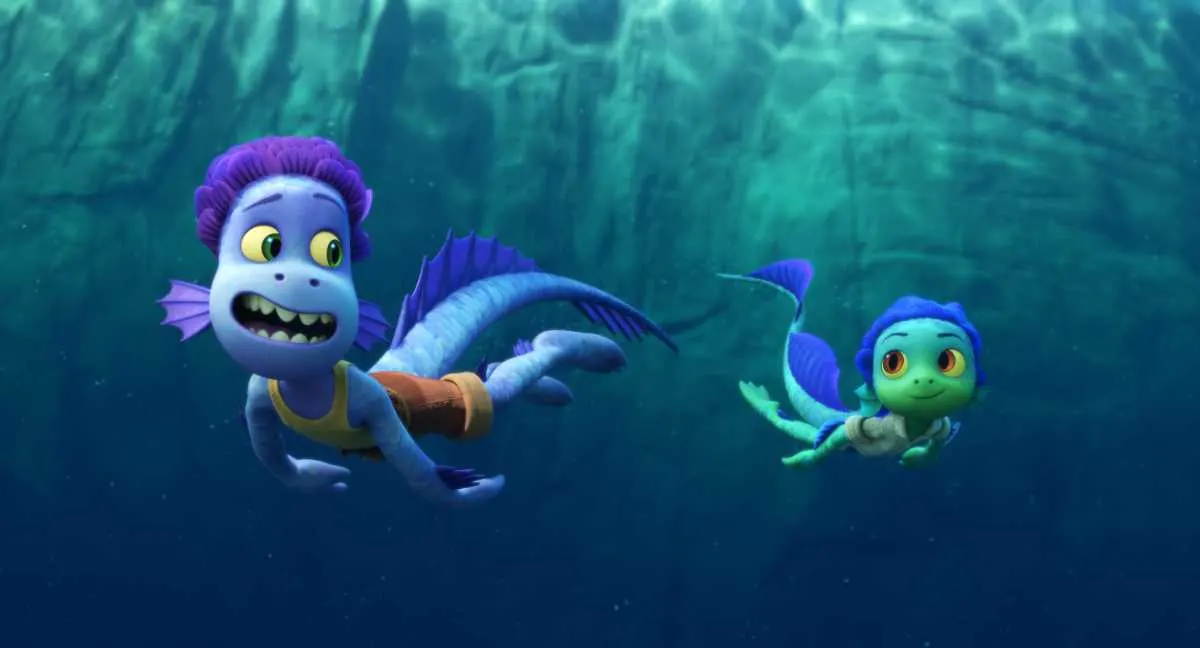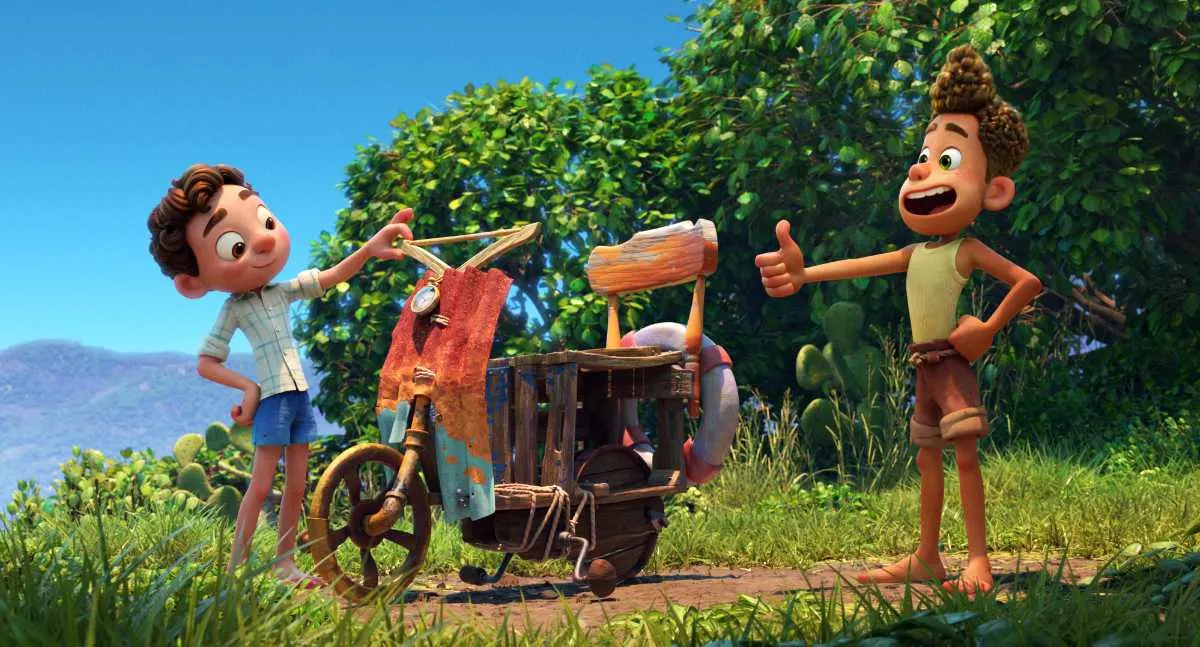There are two types of filmed fantasy (in a structural sense): the ones that explain all of their rules up front and in detail (hopefully because it will matter to the narrative) and the ones that don’t. It is personal preference which one is better, but the latter, by its nature, offers a more magical experience of dreamlike imagery where momentary feeling trumps reason.
At its best, Luca is the closest Pixar has come to the kind of breezy modern fable Miyazaki made famous, with Luca’s flights of internal fancy given marvelous form in a way that makes animation so different than any other film genre.

It’s a shame, then, that none of that matters beyond adding a mild fantastical conceit to Luca’s pretty standard outsider story. Luca (Jacob Tremblay), you see, is a sea monster, at least while he’s wet, anyway. If he leaves the confines of the ocean and dries off, he transforms into an ordinary-looking boy, just one who has no concept of the surface world or how ordinary boys are expected to behave.
Unlike his sea monster family, Luca dreams of what the surface world is like and how much better it must be than his dreary everyday life of herding fish. When he finally meets a sea monster (Jack Dylan Grazer) who regularly visits the surface and, in the process, discovers his ability to turn into a boy and remain hidden in plain sight, he has all the impetus he needs to venture into forbidden lands.

Why does he turn into a human on land, where does his people come from and why don’t they use that ability more? Director Enrico Casarosa and his team aren’t interested in any of those questions, and rightly so. Casarosa and Luca excel early on at a form of dreamy fantasy, materializing Luca’s daydreams and worldview; it’s the sort of thing that flows easily into hazy rules about character transformations and moons made out of fish.
And Casarosa is exactly right to do it that way because the why doesn’t matter. What matters is what Luca does once he leaves the water, and what he does is enter a bike race.

The universe of exploration Luca dreams of, and the way his dreams infect reality, is dumped almost as soon as he reaches dry land. It’s reduced to a single dream of Vespa, with which Luca and Alberto can finally escape out into the wild, go wherever they want, and experience whatever they want.
Rather than give us that story, the natural continuation of Luca, the film’s introduction, and Luca, the character’s hopes and dreams, Casarosa stops to provide a charming locale full of quirky but humanistic characters for the hero to spend time with before getting back to their actual story.

There’s nothing wrong with making the focus of the story the acquisition of a Vespa; it’s charmingly realistic and easier to hold onto than larger fantasy frequently is. That’s not small.
Replacing offered whimsy (from the one company that can really do it) with standard Pixar fare, as fun as it can be, is small.

The best thing in Luca is Dan Romer’s score, which captures the breezy fantasy feeling Luca is going for in a way the rest of the film never quite reaches. Rhythmically unveiling the gossamer border between our world and a world of magic and monsters right next door, Romer’s work does a lot of the heavy lifting the narrative doesn’t quite manage.
It’s exactly what he brought to Beasts of the Southern Wild and Wendy, and if Luca is nothing more than Romer’s calling card to regular studio work, then it will have been a success.

But still, as fun as it can be, it’s hard not to focus on the missed opportunity. When I describe it as Pixar taking on Studio Ghibli, that’s exactly what it is.
Dream logic and fantastic imagery are stuck within the box of Pixar’s more standard character-gag push and pull, and the fit is not great. It’s fun and frequently entertaining, but it’s also a fairy tale with the magic missing.

LUCA REVIEW SCORE: 6.5/10
Pixar’s Luca will be released on Disney+ for all subscribers to watch on June 18. The film also features the voices of Emma Berman, Marco Barricelli, Saverio Raimondo, Maya Rudolph, Jim Gaffigan, and Sandy Martin.

Joshua Starnes has been writing about film and the entertainment industry since 2004 and served as the President of the Houston Film Critics Society from 2012 to 2019. In 2015, he became a co-owner/publisher of Red 5 Comics and, in 2018, wrote the series “Kulipari: Dreamwalker” for Netflix. In between, he continues his lifelong quest to find THE perfect tomato soup and grilled cheese sandwich combination.